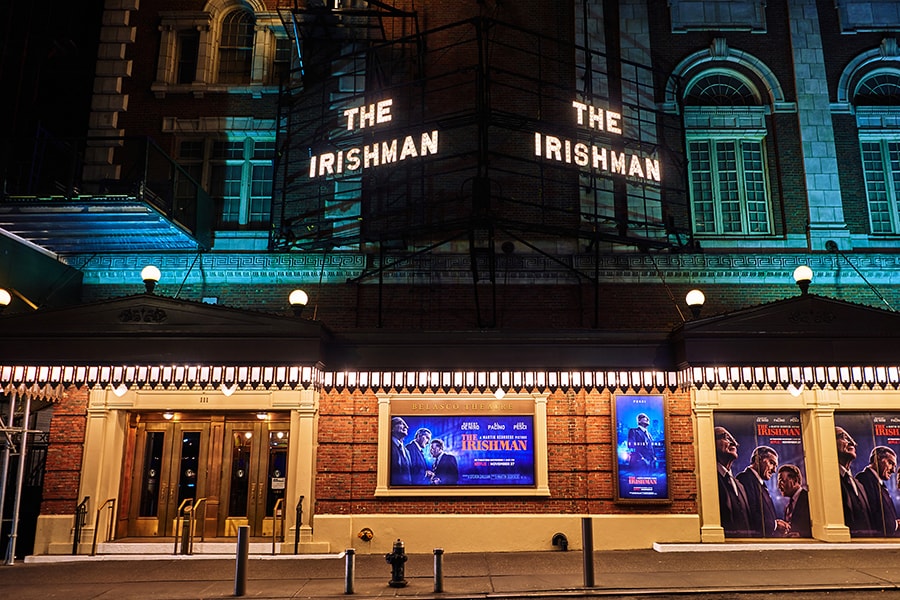
Netflix is spending big, but can it crash the Oscars party?
The streaming giant will arrive at Sunday's Oscar ceremony leading the field, with 24 nominations; but it could end the evening with only two wins
 The Belasco Theatre on Broadway advertises Netflix's screening of “The Irishman,” in New York, on Oct. 21, 2019. The streaming giant has a leading 24 nominations, but forecasters don’t expect it to win many Academy Awards on Oscar night. Image: An Rong Xu/ The New York Times
The Belasco Theatre on Broadway advertises Netflix's screening of “The Irishman,” in New York, on Oct. 21, 2019. The streaming giant has a leading 24 nominations, but forecasters don’t expect it to win many Academy Awards on Oscar night. Image: An Rong Xu/ The New York Times
LOS ANGELES — Ballots for the coming Academy Awards are still being tabulated. But it already seems clear: This will not be Netflix’s year.
The streaming giant will arrive at Sunday’s Oscar ceremony leading the field, with 24 nominations. That’s up from 15 last year and eight the year before, a trajectory that highlights the success that Netflix has had in building a prestige film operation with a minimal presence in actual movie theaters. But the company could end the evening with only two wins, according to Gold Derby, which compiles the predictions of 28 awards handicappers, despite dumping truckloads of cash into awards-oriented marketing campaigns. Competitors estimate that Netflix has spent at least $70 million, a startling sum even by Hollywood’s profligate standards. Netflix declined to comment.
“The Irishman,” Martin Scorsese’s gangster character study, nominated for 10 Oscars and relentlessly hyped by Netflix as “one of the best films of the decade,” is expected by awards forecasters to get shut out completely. Prognosticators like Mark Harris of Vanity Fair and Scott Feinberg of The Hollywood Reporter base their opinions on how films have performed at predictive awards ceremonies leading up to the Oscars.
At the same time, Oscar voters are poised to shower statuettes on films from old-line studios that received traditional runs in theaters, including the late-arriving World War I drama “1917” (Universal), which is the front-runner to win best picture.
It raises unpleasant questions for Netflix. Spending freely on awards campaigning is one of the ways it has been able to woo marquee filmmakers like Scorsese. But with some analysts starting to question the return — Netflix already had a poor outcome at the recent Golden Globe Awards — will the streaming giant change its ways?
While there are those who would argue that competing films like “1917” and “Once Upon a Time … in Hollywood” (Sony) are simply better, the film establishment has been wary of Netflix. Could the lack of statuettes be a backlash to a tech giant that is upending entertainment-industry business practices and threatening Hollywood power hierarchies?
©2019 New York Times News Service




